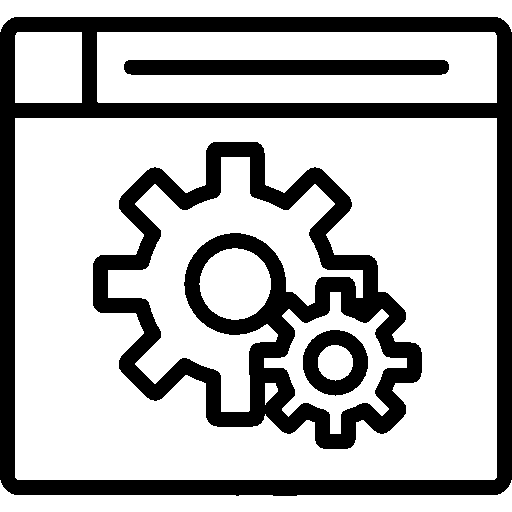- Products
- Platform
- Solutions
- Customers
- Support
- Pricing
 Website & Mobile & E-commerce
Website & Mobile & E-commerce
 CRM
CRM
 Operation & ERP
Operation & ERP
 Productivity
Productivity
 Support
Support
 Community
Community
 Learn
Learn
Application Support Point

Record your incoming and outgoing dues manually or receive them as recurring POS payments.
- Version History
- Application Features
- User Manual
- FAQ
- Community
Membership Management
You can easily record, edit and delete incoming and outgoing dues.
Membership payments are automatically listed according to the periods you specify.
Kategori, tutar, tarih ve diğer detayları istediğiniz gibi değiştirebilirsiniz.
Aidatların gelen veya giden olarak sınıflandırılmasını sağlayabilirsiniz.
Payment and Collection Procedures
You can define recurring payments by credit card for automatic collection transactions.
You can track future dues in advance.
You can calculate additional fees by adding the interest rate you determine to the delayed payments.
You can determine the dues amounts as including or excluding VAT.
Personal Settings and Filtering
You can view the membership cards as tabs or pop-ups.
You can filter daily, weekly, monthly, yearly or all records.
You can filter dues records according to registration date, update date, start and end date.
You can determine which information will be displayed on the dues list screen.
You can sort by registration date, update date, title, start date or end date.
General Configuration and Settings
Users can customize the color of the app.
You can ensure that incoming dues are automatically converted into receivables.
Outgoing dues are defined as debt records in the system and reflected in the relevant accounts.
You can associate dues with financial records and limit them to specific income and expense categories.
You can have your membership fees collected automatically at certain intervals.
You can track and view authorized users who can access the application.
Definition
Dues is an application that allows organizations to keep track of payments received or made at regular intervals.
Aim
It aims to track receivables and debit records of dues quickly and easily.
Key Benefits
- Automatic tracking and management of dues records streamline the process by reducing manual tasks and accelerating management.
- It ensures regular and timely payments and follow-ups, records the history of dues payments and debts, and provides high transparency regarding financial transactions.
- Using automated systems instead of manual recording and calculations minimizes the risk of errors and increases accuracy.
Login Screen of the Dues Application
This is the login screen for the dues application.

Fees Screen
Aidatlar Ekranı
Aidatlar; Gelen Aidatlar, Giden Aidatlar, Pasif Aidatlar ve Silinmiş Aidatlar olmak üzere dörde ayrılır.
Bu menü öğeleri ayarlardaki seçimlere göre farklılık gösterir.
1.Gelen Aidatlar
Gelen aidatlar; bir dernek, site veya apartman gibi toplulukların üyelerinden ortak giderlerin karşılanması için toplanan düzenli ödemelerdir. Aidat Kaydı eklerken Aidat Yönü Gelen Aidatlar seçildiğinde aidat kaydı görüntülenir.

Gelen Aidatlar ekranındaki tablo başlıklarının açıklamaları şu şekildedir:
Sıra; Kaydın sıra numarasını gösterir.
Müşteri; Müşteri adını ve firma bilgisi yer alır.
Konu / Kategori; Gelen aidatın konusu gösterir.
Açıklama; Aidatla ilgili yapılan açıklamayı gösterir.
Kayıt Tarihi; Adatın kayıt tarihini gösterir.
Tahakkuk Tarihi; Aidatın hesaplanıp ödeme yükümlülüğünün başladığı tarihtir.
Başlangıç Tarihi; Aidat ödemesinin başlangıç tarihidir.
Bitiş Tarihi; Aidat ödemesinin bitiş tarihidir.
Periyot; Aidatın ödeme dönemini gösterir.
Sözleşme; Aidat sözleşme detayını gösterir.
Tutar bilgileri tablo halinde listelenir. Yeni Aidat Kaydı Oluştur tuşuna tıklanarak aidat kaydı oluşturulur. .Üst menüdeki Tarih Filtreleme seçeneği ile belirli tarihlerdeki kayıtlar filtrelenir.
Arama Çubuğu ile sayfa içinde arama yapılır.
Kişisel Ayarlar ile kullanıcı ayarları düzenlenir.
veriler Excel formatında kaydedilebilir.
Sayfa Yenileme tuşu ile ekran güncellenebilir.
2. Giden Aidatlar
Giden aidatlar; bir dernek, site veya apartman gibi toplulukların üyelerinin yaptığı düzenli ödemelerdir. Aidat Kaydı eklerken Aidat Yönü Giden Aidatlar seçildiğinde aidat kaydı görüntülenir.

Giden Aidatlar ekranında Sıra, Müşteri, Konu/Kategori, Açıklama, Kayıt Tarihi, Güncelleme Tarihi, Tahakkuk Tarihi, Başlangıç Tarihi, Bitiş Tarihi, Periyot, Sözleşme, Tutar bilgileri tablo halinde listelenir.
3. Pasif Aidatlar
Pasif aidatlar, tahsilatı tamamlanmamış veya iptal edilmiş durumda olan aidat ödemeleridir.

Aidat bitiş tarihi geçmiş olan aidatlardır. Sıra, Müşteri, Konu/Kategori, Açıklama, Kayıt Tarihi, Güncelleme Tarihi, Tahakkuk Tarihi, Başlangıç Tarihi, Bitiş Tarihi, Periyot, Sözleşme, Tutar bilgileri tablo halinde listelenir.
4. Silinmiş Aidatlar
Silinmiş aidatlar, kayıt sisteminden kaldırılmış ve artık geçerli olmayan aidat ödemeleridir. Aidat Kaydu Düzenleme ekranındaki İşlemler alanından aidat kaydı silme işlemi gerçekleştirilebilir.

Silinmiş Aidatlar ekranında Sıra, Müşteri, Konu/Kategori, Açıklama, Kayıt Tarihi, Güncelleme Tarihi, Tahakkuk Tarihi, Başlangıç Tarihi, Bitiş Tarihi, Periyot, Sözleşme, Tutar bilgileri tablo halinde listelenir.
Membership Periods Screen
This screen lists the Dues Periods.
Dues periods are created based on the period information specified in the dues, taking into account the start and end dates.

On the Dues Periods screen, the following information is displayed in a tabular format: Rank, Customer, Subject/Category, Direction, Period Date, and Amount.
Recurring POS Payments Screen
Recurring POS Payments are categorized into four groups: Recurring POS Payments, Upcoming Payments, Periods, and Log Records.
Recurring POS Payments

This page lists records of customers who have set up automatic payment orders. The Recurring POS Payments page displays the following information in a tabular format: Sequence, Customer, Description, Start Date, Last Payment, Payment Status, Amount, and Asset.

To add a Recurring Payment, press the Add New button. Enter Payment Information and Credit Card Information, then save the details by pressing the Save button.
Upcoming Payments

This screen tracks records of upcoming payments. It displays Customer, Card Information, Error Message, Date, and Amount in a table.
Periods

This page lists periods based on the starting date, period, frequency, and number of repetitions specified during recurring payment registration. The table includes Dues Information, Customer, Card Information, Error Message, Date, and Amount.
Log Records

The Log Records page shows records of failed payments. It lists Customer, Description, Error Code/Error Message, and Processing Time in a table.
Configuring Personal Settings
Kişisel Ayarlar, uygulama üzerindeki deneyimini özelleştirmesine olanak tanıyan bir modüldür. Bu tür bir uygulama, kullanıcının kendi tercihlerine göre çeşitli ayarları yapılandırabilmesini sağlar.

Aidatlar uygulamasını özelleştirmek için Listeleme Ayarları ve Sütunlar ayarları yapılır.
Listeleme Ayarları
Detay Gösterim Yöntemi; Sekme veya Popup seçilir. Aidat kartı seçime göre açılır
Varsayılan Takvim Filtresi; Günlük, Haftalık, Aylık, Senelik veya Tümü olarak seçilir. Aidat listesinin seçilen takvim filtresine göre listelenmesini sağlar.
Varsayılan Tarih Filtresi; Kayıt Tarihi, Güncelleme Tarihi, Başlangıç Tarihi veya Bitiş Tarihi seçilir. Aidat listesinin seçilen tarih filtresine göre listelenmesini sağlar.
Sayfalamada Kayıt Sayısı; 25, 50, 100, 250 veya 500 olarak seçilir. Aidat liste sayfasında gösterilecek kayıt sayısının seçimi yapılır.
Sütunlar
Aidat liste sayfasında gösterilecek tablo başlıklarının seçimi yapılır.
Sıra
Müşteri Bilgisi
Konu / Kategori
Açıklama
Bitiş Tarihi
Başlangıç Tarihi
Periyot
Sözleşme
Tutar
Yukarıda listelenen sütun maddeleri tercihe göre seçilerek kaydedilir.
Filtering
Filtreleme ayarları, uygulamada belirli kriterlere göre verileri sınıflandırmak için kullanılır. Bu ayarlar, kullanıcıya yalnızca ilgili veya uygun içerikleri sunmaya yardımcı olur.

Filtreleme ayarları ekranında Tarih Aralığı, Kategori, alanları seçilerek filtreleme yapılır.
Sıralama; Kayıt Tarihi, Güncelleme Tarihi, Başlık, Başlangıç Tarihi veya Bitiş Tarihi seçilerek sıralama yapılır.
Adding a New Dues Record
This is the new dues adding screen.

To add new dues, select Customer, Personnel, or Student. Enter the following details: Dues Direction, Category, Urgency, Accrual Date, Start Date, End Date, Period, Delay Compensation Rate, Amount, Related Product, and Description. After completing all entries, save the information by pressing the Save button.
Summary Screen of Membership Information
This is the Dues Summary screen.

Customer, Current Account, General Information is displayed. The dues record is deleted with the Delete Record button.
Editing Membership Information
This screen allows for editing dues records.

To edit a dues record, modify the following details: Dues Direction, Category, Subject, Urgency, Accrual Date, Start Date, End Date, Period, Delay Compensation Rate, Amount, Related Product, and Description. After making all the necessary changes, save the updated record by pressing the Save button.
Membership Period Payments
This screen displays dues periods.

The periods based on the selected criteria are shown in the dues record. On the Dues Periods screen, the following information is listed in a table: Order, Situations, Direction, Status, Group, Maturity, and Amount.
Configuring General Settings
Settings are customized by selecting preferences from the General Settings menu according to the company’s needs.


The color of the application is customized by selecting the preferred color.
The receivables recording feature allows the creation of receivables records from incoming dues.
The SMS sending feature enables reminder SMS messages to be sent to customers with recurring payment records for their unpaid periods.
Automatic collection is managed through Recurring Payments.
Outgoing dues are recorded using the Outgoing Dues feature.
The debt record creation feature allows for the creation of debt records from outgoing dues.
The Income/Expense Feature links incoming and outgoing dues records to income and expenses.
Dues can be matched with selected expense categories by choosing the appropriate group and category, and similarly, with selected income categories.
The Delay Compensation Rate, set monthly as a percentage, calculates delay interest for overdue debts and receivables.
Dues Categories
The Dues application uses category definitions from the Payables and Receivables applications. Category definitions for incoming dues are checked in the Receivables application, while those for outgoing dues are checked in the Payables application.

Recurring Payment Settings

On the Recurring Payment settings screen, the payment period is selected and saved by entering Frequency, Start Date, Transaction Time, and Past Records information. The timer operates according to the specified periods, triggering credit card payment transactions for recurring payment records.
Configuring SMS Form Settings
This screen displays SMS Form Settings.

The SMS Form Settings screen includes SMS Form, Form Key, and SMS Account information. To edit settings, click on the record.

Enter the SMS Header, SMS Message, and SMS Sending Status information. Labels that can be used in the SMS text are listed on the page. After completing the entries, save the changes by pressing the Save button.
An SMS account must be defined to select the SMS Header. The SMS service provider application must be requested via the Message Basket application. Refer to the Message Basket application document for details.
View Authorized Users
On the Authorized Users screen, users are registered by giving them the necessary authorizations.

-
How do I add a membership fee record?
Uygulama içinde "Yeni Aidat Kaydı Oluştur" tuşuna tıklanılır. Açılan "Aidat Kaydı Ekleme" ekranından yeni aidat eklenebilir. Aidat yönü, kategori, aciliyet, tahakkuk tarihi ve diğer temel bilgileri girdikten sonra aidat kaydınız oluşturulur.
-
How do I edit an existing dues record?
Aidat kaydını düzenlemek için ilgili aidat bilgisini seçip, "Düzenle" tuşuna tıklanır. Açılan "Aidat Düzenleme" ekranında gerekli alanları düzenleyebilirsiniz.
-
How can I keep track of my membership dues payments?
You can track your payment status by reviewing the Incoming Dues, Outgoing Dues, Passive Dues and Deleted Dues sections on the "Due Payments Screen". You can also check your periodic payments on the Dues Period Payments screen.
-
Can I add interest to delayed membership dues payments?
Yes, you can determine the "Delay Compensation Rate" when creating a dues record and ensure that interest is charged on delayed payments.
-
How do I set up recurring POS payments?
You can select a customer and enter payment information by clicking the "Add New" button on the "Recurring POS Payments" screen. You can create a record by adding payment start date, time, periods and amount information.
-
How can I filter dues records?
You can classify certain dues records using options such as date range, category, etc. from the "Filter" settings. You can also sort records by criteria such as Record Date, Update Date, Title, Start Date, and End Date.
-
How can I customize the dues list view?
You can determine how the dues list will be displayed using the "Listing Settings" and "Columns" options in the "Personal Settings" section.
-
How can I change the color of the app?
You can choose your preferred color by going to the "Set App Color" section in Settings >> General Settings or enter the color code manually.
-
Can I create a credit record in the Dues application?
Yes, you can enable the "Use Credit Record Creation Feature" option from the Settings >> General Settings screen to automatically convert incoming dues into credit records.
-
Can I create a debt record?
Yes, when you activate the "Use the Debt Record Creation Feature" option from the Settings >> General Settings screen, the outgoing dues are defined as debt records in the system and are reflected in the relevant accounts.
-
Can I associate dues with income and expenses?
Yes, you can activate the "Use Income / Expense Feature" option from the Settings >> General Settings screen and associate the dues records with income and expense categories. In this way, you can track the dues payments more regularly in your financial reports.
-
How do I manage recurring payments?
You can enable the "Use Recurring Payments" option on the Settings >> General Settings screen to automatically collect your membership fees at certain intervals. On the "Recurring Payment Settings" screen, you can make adjustments regarding payment period, frequency, start date, transaction time and past records.
Questions
Ask questions and get answers from other Entranet users.

















